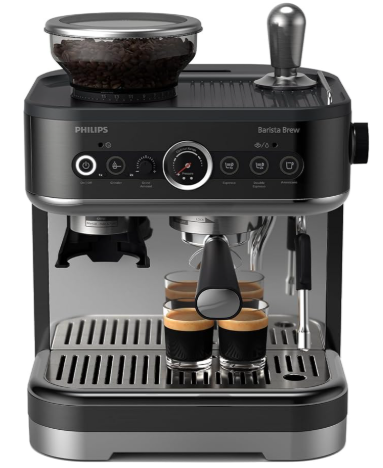How Coffee Became the World's Favorite Morning Ritual
BLOG NEWS
9/11/20256 min read
The Origins of Coffee: A Historical Perspective
The history of coffee is as rich and complex as the beverage itself, with its roots tracing back to ancient Ethiopia. The tale often begins with the legendary figure of Kaldi, a goat herder who discovered coffee’s invigorating properties when he observed his goats frolicking energetically after consuming coffee cherries. This curious observation purportedly laid the groundwork for coffee's journey into the wider world. From Ethiopia, coffee made its way to the Arabian Peninsula, where it became an integral part of local culture.
In the 15th century, coffee cultivation and trade began in the Arab world, particularly in Yemen. Here, the drink transitioned from a simple food to a cherished beverage, with its stimulating effects celebrated in Sufi monasteries, where it was consumed to aid in concentration during long hours of prayer and meditation. The spread of coffeehouses, known as qahveh khaneh, in cities such as Constantinople introduced coffee as a social drink. These establishments quickly became vibrant cultural hubs where people gathered to converse, discuss politics, and engage in performances, marking coffee as a pivotal element of social life.
By the 17th century, coffee had reached Europe, where it faced initial resistance but gradually became embraced as a popular alternative to alcoholic beverages. The establishment of coffeehouses across major European cities, such as London, Paris, and Vienna, further solidified coffee's role in social dynamics. These venues were often referred to as “penny universities,” as patrons could engage in intellectual discussions for the price of a coffee. As European interest in coffee surged, so too did its trade, leading to the establishment of coffee plantations in colonies around the world, notably in the Americas. This expansion not only facilitated the global spread of coffee but also contributed to the economic and social development of various regions.
Cultural Significance of Coffee Around the World
Coffee, a seemingly simple beverage, plays a profound role in cultures across the globe, influencing social interactions, daily rituals, and culinary traditions. In Ethiopia, the birthplace of Arabica coffee, the coffee ceremony is a revered event steeped in tradition. This elaborate process involves roasting green coffee beans, grinding them, and brewing them in a special pot called a jebena. Friends and family gather during this ceremonial occasion, which serves as a vital social gathering, allowing for open conversation and connection. The coffee ceremony highlights the significance of community and hospitality, showcasing how coffee is integral to social bonding.
In Italy, the espresso culture has become synonymous with identity and lifestyle. Italians regard coffee consumption not just as a daily ritual, but as an art form. Espresso bars serve as social hubs where patrons enjoy their coffee standing at the counter, emphasizing the brevity of the interaction and the communal aspect of drinking coffee. The Italian tradition of enjoying coffee embodies a sense of urgency yet connection, as it fosters spontaneous conversations among strangers and friends, contributing to a vibrant social tapestry.
Moving to France, the café scene epitomizes the intersection of leisure and sociability. French cafés are not just places to enjoy coffee; they are settings for intellectual discourse and creative expression. Writers, artists, and philosophers have flocked to these establishments for centuries, using coffee as a catalyst for inspiration and connection. This cultural significance highlights how coffee serves as a medium that brings together people from all walks of life.
In contemporary society, coffee’s role has evolved to become central in workplace culture. Coffee breaks have become essential moments for colleagues to collaborate and connect. The communal aspect of ordering coffee together or sharing a coffee break encourages communication and fosters team dynamics, illustrating its ongoing relevance in modern life. Across continents, coffee continues to forge connections, bridging gaps and enhancing the shared human experience.
The Science Behind Coffee: Why We Love It
Coffee has long been celebrated as a cherished morning ritual, and its popularity can be attributed to a combination of biological, psychological, and sensory factors. One of the primary reasons for coffee's widespread appeal lies in its caffeine content. Caffeine acts as a central nervous system stimulant, enhancing alertness and reducing fatigue. When consumed, it blocks adenosine receptors in the brain, which can lead to increased dopamine levels, resulting in elevated mood and improved cognitive performance. This biochemical response explains why many individuals rely on coffee to kickstart their day and maintain productivity.
In addition to its stimulating effects, the sensory experience associated with coffee is a crucial element of its allure. The rich aroma of freshly brewed coffee has been shown to evoke feelings of comfort and satisfaction. The flavor profiles of coffee vary widely, appealing to diverse palates and preferences. The warmth of a cup held in one’s hands can also provide a sense of comfort, creating a calming ritual that many find essential to their morning routine. This multi-sensory experience cultivates a psychological attachment to coffee, reinforcing its status as a beloved daily habit.
Moreover, research has highlighted the positive correlation between coffee consumption and mental well-being. Studies suggest that moderate intake of coffee may be linked to a lower risk of depression and a reduced likelihood of experiencing mood disorders. This relationship can be attributed not only to caffeine's effects but also to the social context in which coffee is often consumed. Gathering moments with friends or colleagues over coffee can enhance feelings of connection and relaxation, further solidifying coffee's role in daily life.
In essence, the science behind coffee reveals a complex interplay between its biochemical effects on the brain, the sensory pleasures it provides, and the social connections it fosters, making it an integral part of many people's morning rituals.
The Modern Coffee Industry: Trends and Innovations
The coffee industry has undergone remarkable evolution in recent years, characterized by emerging trends and innovations that have significantly reshaped coffee consumption. A notable phenomenon has been the rise of specialty coffee shops, which have transformed how consumers engage with coffee. These establishments prioritize quality, origin, and unique brewing techniques, allowing customers to explore a diverse array of flavors and profiles. This shift towards specialty coffee signifies a growing appreciation for the nuances of coffee, encouraging an informed consumer base that values craftsmanship over quick convenience.
Complementing this trend is the third-wave coffee movement, which emphasizes transparency in sourcing and the artisan approach to coffee production. This movement has led to a heightened focus on sustainability, with many coffee companies now prioritizing ethically sourced beans. Consumers are becoming increasingly aware of the environmental and social implications surrounding coffee cultivation, and as a result, there is a burgeoning demand for certified organic and fair-trade options. Producers and retailers alike are responding to this shift by implementing practices that support both the planet and the livelihoods of coffee farmers.
In addition to these cultural shifts, technology has played a pivotal role in transforming the coffee experience. Innovative brewing gadgets, such as pour-over kits, espresso machines, and smart coffee makers, have enabled coffee enthusiasts to experiment with various brewing methods at home. Furthermore, apps dedicated to coffee education and tracking consumption have gained popularity, making it easier for casual drinkers to engage with their favorite beverage. This seamless integration of technology into the coffee rituals of consumers has not only enhanced the overall experience but has also fostered a community driven by a shared passion for coffee appreciation.
One of our favorite coffee makers....
PHILIPS Barista Brew Semi Automatic Espresso Machine


About this item
Brew like a barista: The Philips Barista Brew Espresso Machine empowers coffee enthusiasts to create barista-quality brews with tools like the 58mm portafilter and single & dual walled filter baskets.
Integrated guidance: Enjoy intuitive guidance for crafting every cup, ensuring a rich aroma and satisfying espresso experience with the premium calibrated tamper & countertop-safe tamping system.
Elevate your coffee experience: Enjoy a 250g bean container that ensures freshness of your beans.
Upgrade your milk frothing experience: Elevate your milk frothing experience effortlessly with the 450ml stainless steel milk jug and powerful steam wand.
Choose your ideal brew: experience convenience with the Americano button and integrated hot water outlet, or choose a single or double espresso.
Click 'Shop Now' to find on Amazon
Why the PHILIPS Barista Brew Semi-Automatic Espresso Machine one of our favorites...
The PHILIPS Barista Brew Semi Automatic Espresso Machine is more than just a coffee maker—it's a daily dose of barista-level bliss in our own kitchen. It’s quickly become one of our favorite machines, and here's why.
First, let’s talk about consistency. This machine delivers rich, velvety espresso shots with the perfect crema—every single time. Whether you're pulling a single or a double, the semi-automatic design gives you control without being overly complicated, making it ideal for both beginners and seasoned home baristas.
The built-in steam wand is another major win. It creates creamy, café-quality microfoam for lattes, cappuccinos, and flat whites. It heats up quickly and gives you just the right amount of power to texture milk exactly how you like it.
Disclosure: This post contains affiliate links. If you click and make a purchase, I may earn a small commission at no extra cost to you.


